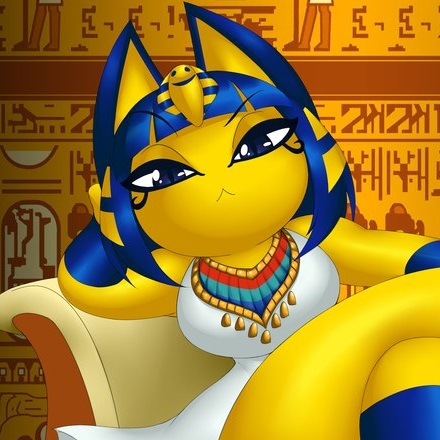So, hear me out.
I’m a 47 year old guy and I’m not ashamed to say that I enjoy video games. I always have, from playing Head over Heels on a Speccy +2 to ESO and Valorant on my self built PC.
Due to various life circumstances, I’m also on the dating scene and to most women I meet, around my age, video games are anathema. When I say that I like them it’s usually meet with an “oh dear” or a “my son would probably love to talk to you about them, I find them really boring”
I have two boys, both teenagers, both play all the time and sometimes we all play together (although they are better as they have more time to apply to games). Their friends are amazed that I will talk about games with them, that I know someone about games and that I play games. None of their parents want to talk with them about what is effectively their main hobby that they do all the time (big sad).
So the question, there must be some sort of cut off age at which video games are no longer an acceptable pastime. Is it absolute age based (nothing after 35) or is it something to do with the progression of games into popular culture and people born after, say, 1986 will not see it as unacceptable?
I don’t have an answer, I just think it’s an interesting question. Thanks for reading, let me know what you think!
Edit to add: I’m not planning on stopping through peer pressure, just wondering about the phenomenon!
41 year old woman here. I was born with gaming, I will die with gaming. Do not hide your gaming from the get go. Put it in your profile. Its a huge part of my life, so finding that in a partner is a must in my book. There are women out there that share my sentiment, and some that just like games or don’t care.
Do what you want!
Assuming you aren’t ignoring other obligations, gaming is completely acceptable.
Anything else is pretentious.
So the question, there must be some sort of cut off age at which video games are no longer an acceptable pastime.
When you no longer enjoy it
There’s absolutely no age cut off for video games. I would even go further and say that more seniors should play video games.
But, I also wouldn’t be too judgy with people who think video games are for kids. This is all thanks to decades of marketing. Atari, the first popular video game console, was sold along side TVs and other electronics and was targeted towards everyone. But then Nintendo decided to market their console as a toy, instead of a consumer electronics product. Also, they had to pick a “boy” vs “girl” aisle, and they picked “boy”, which is why video games aren’t seen as girly.
“what is the age cut off for socially acceptable fun having” is what I read. Do what you enjoy and anyone saying you shouldn’t do X, or you are too old to do Y aren’t the type of people I associate with. Just turned 30 and I never plan to stop.
I don’t think there “must” be an age cutoff where people are supposed to stop playing - instead, there’s an age cutoff for where people didn’t grow up with or have access to computers or gaming.
I was born right on the cusp of video games moving from niche nerd shit and becoming relatively mainstream. I can see that there’s a clear gap between friends who game and friends who don’t that nearly directly ties to whether or not they played games as a kid. A lot of the time for my generation, that’s a socioeconomic division more than anything else. Computers were expensive as a kid, so most of my friends who grew up poor found other interests in childhood and grew up to be adults who don’t really play games. The kids I grew up around whose families were more well-off have continued gaming as adults. Maybe less, maybe different games; but in many ways it’s like asking what age someone is supposed to outgrow “having hobbies”.
The older someone is today the less likely it is they had access to games and gaming, and often the more intimidating they find learning about computers and gaming - and the more time they’ve had to find some other hobby that they find compelling.
There definitely is a thing in the dating market where some people can be particularly judgmental about gaming. Personally, I’ve found that is loudest and largest for some of the more … “serial” daters I know, who have found themselves in relationships with lots of different people and have found that gaming, or identifying as a “gamer” tends to correlate with other bigger issues. There’s also the side concern when something that’s big in your life isn’t something they can relate to - a little like the ultra-fan Sports Dudes where all of every game day will always be booked off for watching the games with the boys.
I think in regards to the dating market, it’s less that anyone needs to “grow out of” gaming, and more that adults are more expected to have a mature relationship with their hobbies, gaming included. And given that there are negative connotations about degenerate adult gamers not really grown up, that may be something to keep in mind regarding how you present that hobby and how you talk about your relationship with it.
bruhhhhhh… 40somethings folks is what created the booming gaming industry. We can’t stop now it’ll crumble without us!!!
Be 80 and play FIFA, it’s fine. There’s no age where you are obliged to put down your controller for the last time. But it shouldn’t be your first answer while you’re dating, and definitely not your only one.
Being a gamer, as an identity, has a lot of baggage.
Having gaming be your only interest or hobby is associated with being an unambitious self-interested person who intends to do as a little as possible, as long as possible. The recognisable games are marketed towards kids/teens with time to burn.
Imagine your date’s interest was “moderating Reddit”, “watching TikTok”, or “reading Instagram”. That’s what ‘gaming’ sounds like: your hobby is media consumption.
There’s no age where you aren’t allowed to consume media; but it’s worrying if that consumption is your identity, if consumption makes up your routine.
So it’s not actually about age - it’s about maturity and goal-setting.
When we’re younger, most of us live moment-by-moment. Media consumption offers no future, but it has a pleasurable present.
But as people age, people develop goals and interests that require more investment and focus, and they’re looking for people that are doing the same. A cutthroat economy demands people develop goals for financial stability, even if they still otherwise like games.
As we age, we stop looking for somebody to hang out with, but to build a life with.
So once the people you’re talking to have interests for the future, “I enjoy my present doing my own thing” doesn’t offer them anything. If they don’t play games, they don’t even know what games are capable of. Maybe one day they’d enjoy playing Ultimate Chicken Horse with you.
But right now, they just see the recognisable titles that want to monopolise children’s time, and assume you’re doing that. They picture you spending 20+ hours a week playing Fortnite. And there is an age cut-off where it’s no longer socially-acceptable to be a child.
It’s not that video games are bad, but they’re a non-answer. They want to know what you do that’s good, and a non-answer implies you don’t have a good answer at all, and that makes video games ‘bad’.
That’s what ‘gaming’ sounds like: your hobby is media consumption.
It’s really weird that people who have “reading books” as their main hobby are not as stigmatized as their digital media counterparts. Is it the digital aspect that turns the hobby into weirdness?
Maybe - certainly generations always assume anything that younger people do is somehow worse than what they did, and the digital landscape is a part of that. When writing slates became accessible, the old guard complained it was ‘lazy’ because they didn’t have to remember it anymore. Any music popular among teenagers (especially teenage girls) is mocked as foolish, cringe, etc.
But I suspect like most hobbies, it’s mostly the following that determine our assumptions:
- history of the media and its primary audience (digital mediums are mostly embraced by youth; video games initially marketed to young children)
- accessibility; scarcity associated with prestige (eg: vital labour jobs are not considered ‘real jobs’ if they don’t require a degree)
- the kind of people we visibly see enjoying it (we mostly see children, teenagers, and directionless adults as gaming hobbyists)
You’re right, reading is not somehow more or less moral than video games. Many modern games have powerful narrative structure that is more impactful for being an interactive medium. Spec Ops: The Line embraces the players actions as the fundamentals of its message. Gamers are hugely diverse; more than half the US population actually plays games at this point, and platforms are rapidly approaching an almost even gender split. (Women may choose to play less or different games, and hide their identity online, but they still own ~40% of consoles.)
Games as a medium is also extremely broad. I don’t think you could compare games to ‘watching anime’ for example, so much as ‘the concept of watching moving pictures’, because they can range from puzzles on your phone, to narrative epics, to grand strategies, to interactive narratives.
So a better comparison for video games isn’t ‘reading books’ so much as reading in general, and are you reading Reddit, the news, fiction, or classic lit? What does your choice of reading mean?
So for your suggested hobby of ‘reading books’, one might assume any (or all) of the following:
- they are intelligent and introspective (or pretentious),
- they are educated (or think they’re better than you),
- they are patient and deliberate (or boring),
- they’d be interesting to discuss ideas with (or irrelevant blatherers).
Assuming everybody who reads is ‘smart’ is as much an assumption as assuming everybody who games is ‘lazy’, and the assumptions you make about the hobby are really assumptions you make about the typical person who chooses it. It may not be a guarantee, but its a common enough pattern.
TLDR: Ultimately? I think books have inflated status because it’s seen as a hobby for thinkers; people picture you reading Agatha Christie (but you could be reading Chuck Tingle, or comic books). Games have deflated status because it’s seen as a hobby for people who consume mindlessly - the people who know what games are capable of are the ones playing them, too.
I am over 60 and play Minecraft regularly.
Teach me about Minecraft, Wise One! I’m a mere 50 and looking to get into it…
I play on Linux, but Minecraft works well in Linux, Windows and Macintosh. There are also clients for mobile phones. You may have to seek help elsewhere for installing Minecraft, for windows I think it is in the Microsoft store so that should be easiest.
Ok, Minecraft is a sandbox game with no specific goal or endpoint. The object is to build stuff and have fun. There is a dangerous element built-in in the form of Creepers, Skeletons, Spiders, and Zombies. Creepers are the worst - they destroy your actual work. The others can just kill you - you end up reincarnating back at the spawn point. The spawn point is the location where
- you first appeared in the game world
- the last place you slept in a bed.
I normally play with the dangerous “Mobs” (mobile items) turned off as I like the model-building aspect of the game.
Some of this will seem wordy and confusing - really it is simple but takes a lot to describe. Youtube has “First Day in Minecraft” videos by various players that will show you what I am describing. “https://www.youtube.com/watch?v=ADU1ycprBg4” seems good.
Ok, that’s the environment, now the mechanics. You can move your avatar, you in the game, with the “w s a d” keys. these walk forward, backup, or slide right or left. You can change where you are looking with the mouse.
You can break blocks with the tool you are holding by holding down the Left mouse button. You will see cracks form and finally, the item will break. Move close to the floating broken item and you pick it up and put it in your inventory.
You can place items from your inventory into the world with the right mouse button.
You start with only fists as your tools - but you are strong, you can punch trees to get logs and cut down the tree. Find a tree that is not touching others and punch (hold down the left mouse button) until that block breaks - you will see a smaller version of the log floating nearby or you may pick it up automatically if it lands close to you. Likewise, punch each of the other log blocks of the tree. You now have logs!
You can use one log to craft a crafting table. To open your crafting interface push the “e” key on your keyboard - You will be presented with a 2x2 place to put items and your inventory. Drag and drop one log from your inventory into any of the 2x2 cells and see 4 planks appear in the output cell. Drag those planks back into your inventory. Take 4 planks from your inventory and put them in the 4 cells of the crafting interface and you see in the output a crafting table. A crafting table works the same way as your crafting interface except it has a 3x3 input area. The larger input area allows you to craft larger, more complicated things.
You want to get wood and build yourself a small simple shelter before night comes. The dangerous mobs come out at night and you want to be enclosed so they can’t get to you. When daylight comes Zombies and Creepers burn in the sunlight and spiders become docile until the next night.
Now - many of the things you make on a crafting table or in your crafting interface require the ingredients be placed in a specific arrangement. You can learn of these arrangements by opening the crafting book (the book icon in the crafting interface)
Reply here if you have other questions - but go watch that video first. Have fun! Welcome to Minecraft. BTW I am 65 and playing Minecraft so don’t let anyone tell you it’s just a kid’s game.
I usually hang out on Lemmy.one. I am waspentalive there too. I may be slow in responding if you reply. Sorry…
Thank you for your generous response. I’ll follow your advice… I just wanted to say that it feels great that someone has taken this much interest in my Minecraft initiation!
Your welcome.
I have wildly diverse hobbies, so I usually manage to mention something that people around me find weird. Gaming is one of them, and since I am not just your age but also female, I have received tons of strange comments over the years. At least my being somewhat fluid in English isn’t making me stand out anymore!
I think computer-related activities are seen different by our age group since we didn’t exactly grow up with it, or at least most of us didn’t. I know I was already a teenager when my parents bought us kids a computer, and that one needed inputs in BASIC and was textbased only. And while several of my classmates had similar experiences plus parents who insisted this was useful to know for our futures (and boy, where they right!), most of us still preferred to spent our time elsewhere. I see the difference in my kids, who grew up with not only computers and related technology, but also the internet. My son occasionally played board games via an internet platform by the time he was five (under supervision, of course), and as such, video games are much more part of daily life for that generation.
In my eyes, the decades-long discussion on when to give your child his/her first mobile phone has similar roots: We were used to a slower pace of life, that as a child you carry a few coins so that you can call your parents from a pay phone in an emergency, and otherwise you had to be at home at a specified time. Play dates with school mates were discussed in person at school, and so forth. Our children are dealing with far faster pace, discussion with class mates only occasionally take place eye-to-eye, and their schedules have become much more complex and fluid. Also, they grow up knowing everybody and anybody carries a phone in their pocket, and of course they want the same. Technology is integrated into their lifes from the start, and that means gaming is far more acceptable as a pastime.
Very thoughtful response, thanks!







